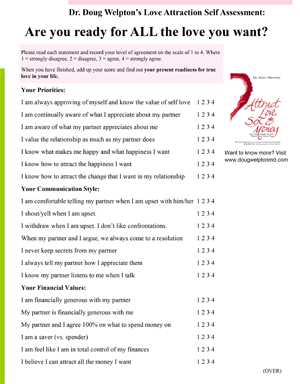Kristen came to therapy for help with bouts of depression, especially when she had gained a few pounds. During counseling she said that her father left her mother when Kristen was one and a half. He left his wife to marry another woman with whom he started a second family. When Kristen visited he made her feel she did not measure up to his new family. Visiting him was very painful for her.
I told Kristen that she was suffering from shame, not natural shame like embarrassment, but toxic and carried shame. Toxic shame is toxic to our self-esteem and makes us feel unworthy, like we are a mistake. Guilt is different; we feel a twist in our gut for having made a mistake. Shame is about our whole being and we feel it only in the presence of others. We look away, break eye contact, we want to hide and not be seen.
Shame is a helpful emotion too. It is the feeling that stops us in time so we do not hurt and abuse others. It reminds us we are imperfect in our humanness and makes way for our spiritual connection to God who is perfect. When we are shameless we mistakenly think we are God, we do not limit and stop ourselves, and we abuse others.
If I steal an apple at the grocery I feel guilt all by myself for having violated my own standard of not stealing. When the cashier confronts me for having stolen the apple I feel shame and want to hide. We can feel guilt and shame simultaneously or separately.
In our third meeting Kristen arrived looking miserable. She had weighed herself and learned she weighed 140 pounds instead of her desired weight of 120. Her whole being was in shame over 20 pounds. She had empowered the weight scale with the power of God. She lost her vitality and looked forlorn. Her light no longer shone. When not depressed she has a smile that comes from her heart and can light up the room.
Kristen talked about how unworthy she felt from the way her father had treated her. She said that two years ago she had taken the initiative to repair their relationship by taking down her wall of silence. She had forgiven him. Their relationship was improving. Yet the pain and shame she felt were palpable as she spoke.
I told her that if her father had paid attention to her as a child he might have said something to her about how special she was and is, about the smile she has that starts in her soul and radiates outward from her like a beacon of light, about daring to release the splendor contained within her. Tears came to her eyes, then a radiant smile.
At her appointment the next week Kristen again looked miserable and forlorn. Her smile had all but disappeared except for brief flashes of light. I took her inventory regarding the abuse she had endured with her father. It was clear she had experienced neglect from him as well as being told she was stupid. She received no spiritual guidance regarding God or religious practices or knowing about a power higher than herself. I suggested we set up an individual session for her to address the shame she experienced with her father. Kristen and William agreed to my plan.
I explained to Kristen and William the shame reduction exercise we would be doing to help her let go of the shame she carried from her abuse by her father. When we abuse a child we are shameless: we do not stop ourselves and we disown our shame. The child picks up that energy in the form of shame and carries it with them, which becomes that child’s carried and toxic shame.
The chain of connection between the abused child and the parent is broken. Responsibility for restoring that connection needs to come from the parent. A child cannot take that responsibility. The concept of carried shame and the shame reduction process was created and taught to me by Pia Mellody and is described in her book Facing Codependence.
To start the exercise at her individual meeting I had Kristen sit beside me in a separate chair as we both faced an empty chair where her father would sit. I explained to her that I would move the empty chair directly in front of her. Next, I would ask her to tell me as I moved the chair away from her how far distant she wanted it. I explained she needed to feel safe and comfortable when talking to her father. The distance was to be determined solely by her needs, not by taking care of her father.
I explained to Kristen that the subconscious mind does not distinguish between whether her father is actually present or is present in her mind by her seeing his image. The result is just as powerful as if her father were present. Furthermore, if we were to ask her father to participate in this exercise she could easily be re-wounded unless he had done psychological and spiritual work on himself to mature so as to be a better parent.
I got up from my chair and put the empty chair directly in front of Kristen touching her knees. I started slowly to pull the chair away from her while asking her to tell me when to stop. I had barely pulled the chair back a foot when Kristen said, “Stop!”
I couldn’t believe my eyes. I thought she hadn’t understood me. To make sure I sat down in the chair facing her. We were virtually knee to knee. I was sure she would be uncomfortable and tell me to keep withdrawing the chair. She didn’t.
“You really want to be this close to your father?” I asked. I am sure my tone conveyed my disbelief.
Kristen looked intensely at me. “HE NEVER SAW ME!” she said loudly. “HE NEVER LOOKED AT ME! She shouted. “HE NEVER MADE EYE CONTACT!” She screamed.
I got it. I understood what I had not understood before. I left the chair where it was. We proceeded with our shame reduction work as I guided her to inhale peace and exhale fear, gently close her eyes and continue her deep breathing.
I asked her to invite her father to come into the room and sit down in the chair in front of her. She did and she reported that he sat down.
“How does he look?” I asked.
“Annoyed,” she answered.
“Tell him you need him to focus on you, to pay attention to you because you have an important piece of work to do with him.”
She told him. He didn’t respond. He didn’t pay attention. He looked away. He ignored her. He looked uncomfortable and irritated.
I said: “Tell him he is your father! You are his daughter! As your parent he needs to join you in this exercise! He is doing this for you! It is not for him! He is doing it as a parent who cares for his daughter! It is not about him! It is about you!
It took us more than five minutes of insisting on this message in ever more forceful tones to get Kristen’s father finally to pay attention. I have never before needed so much time to get a parent to participate to help his child.
Once her father focused on Kristen I had her tell him: “When you ignored me you shamed me. About that I’m feeling ashamed and angry. I have a right to feel angry! I am giving you back your shame! I refuse to carry it for you any longer! It is your shame, not mine! It belongs to you, not to me! It is yours from this moment on!
We repeated this same message for his not looking her in the eyes and for his treating her as inferior to her step-siblings.
At this point Kristen remembered, “He told me time and again I was self-centered. He called me selfish.”
I said to Kristen: “Tell your father that it is the nature of a child to be self-centered. Tell him that you were not the one who was self-centered. You were a child. He is the one who was self-centered! He was selfish! He is still acting self-centered when he refuses in this exercise to pay attention to you. It is time for him to stop blaming you for what he did and to take responsibility for himself!”
Kristen’s face looked greatly relieved.
We continued our work of returning her father’s shame to him for calling her stupid and for not providing her with spiritual guidance.
We finished the exercise by thanking her father for coming and telling him he could leave. After he left I invited her to open her eyes gradually to come back into the room.
When I asked how she felt she reported that all the pain that she had felt all across her chest had disappeared. There was one spot of pain that remained on her collarbone.
The following week in their couples therapy Kristen reported that her collarbone pain had now gone away. Her smile had come back.
What a shame it is to be ignored and dismissed by your own father, and even more so to be blamed for his transgressions. Imagine a self-centered parent blaming his child for being self-centered. If you are searching for an example of what it means to be shameless this is it. The greatest shame is to have none.
Thank God for shame. It allows us to be imperfect, to be human, and to turn to Him as our higher power when we are in need.


